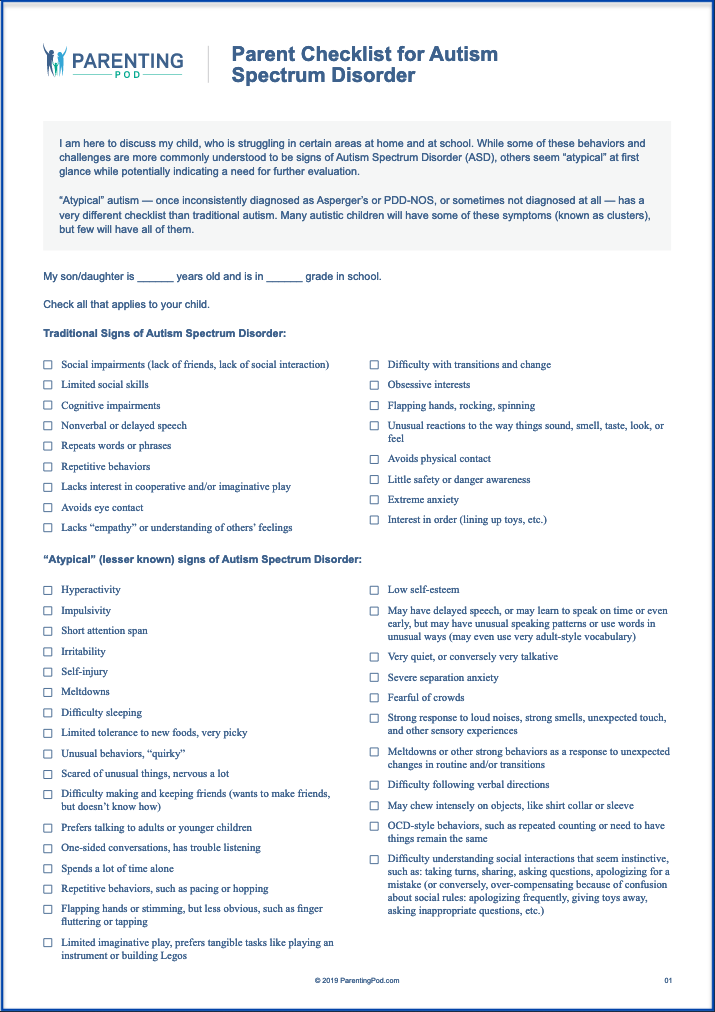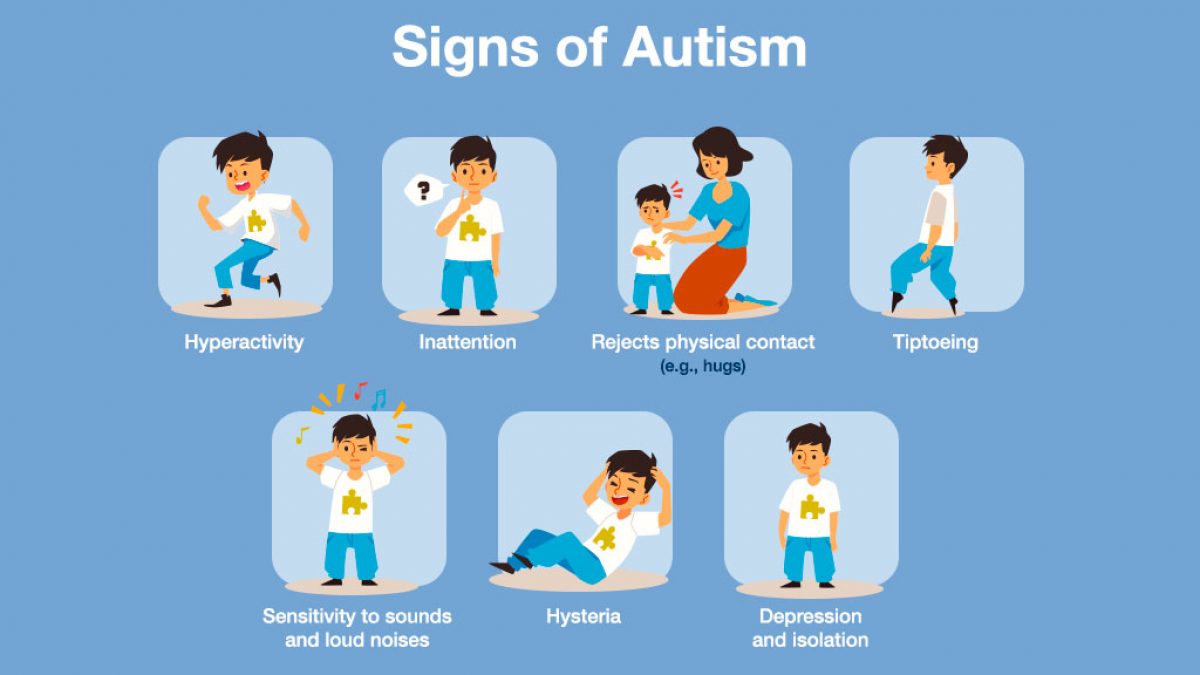Signs it’s time your family needs Autism Behavioral Therapy
Signs it’s time your family needs Autism Behavioral Therapy
Blog Article
Recognizing the Impact of Behavioral Autism on Day-to-day Live and Social Communications
You could not understand just how deeply behavioral autism impacts daily life and social interactions. People on the range usually navigate a world filled up with interaction hurdles and sensory overload. These obstacles can lead to stress and seclusion, affecting their relationships and total well-being.
Specifying Behavior Autism and Its Qualities
Behavioral autism, often described as autism range disorder (ASD), incorporates a series of problems identified by challenges in social interaction, communication, and repeated actions. You might see that individuals with ASD usually have a hard time to analyze social signs, which can cause misconceptions in discussions. They may discover it tough to establish eye contact or involve in tiny talk, making social circumstances really feel overwhelming.
Interaction difficulties can materialize in numerous ways, from delayed speech growth to a preference for utilizing less words. Repetitive habits, such as hand-flapping or shaking, can function as coping mechanisms to handle anxiety or sensory overload. These qualities can exceptionally influence every day life, making it essential for you to recognize and support those with ASD. By identifying these traits, you can promote an atmosphere that advertises approval and urges reliable communication, aiding individuals with autism flourish in their everyday interactions.
The Range of Autism: Comprehending Variability in Actions
Autism range disorder (ASD) isn't a one-size-fits-all medical diagnosis; it varies commonly amongst people. You may discover that some people with ASD display light signs and symptoms, while others might encounter extra substantial challenges. This variability can manifest in behaviors, passions, and sensory sensitivities. You may come across people who are highly spoken and involve quickly in conversations, while others might prefer singular tasks or interact non-verbally.
Furthermore, the way individuals with ASD react to sensory input can differ significantly; some may be overwhelmed by loud sounds or bright lights, whereas others thrive in stimulating environments. The range likewise consists of differences in social interactions; some people may battle to interpret social signs, while others navigate social setups with relative simplicity. Understanding this irregularity is crucial, as it aids you value each person's special experience and tailor assistance to their particular needs, fostering a more comprehensive environment for everybody.
Interaction Challenges Dealt With by People With Autism
When you communicate with people on the autism range, you may see their one-of-a-kind communication challenges. They commonly encounter problems with both spoken and nonverbal hints, which can affect their social interactions. Recognizing these obstacles is important for fostering far better links and assistance.

Verbal Communication Problems
Many individuals on the autism spectrum experience spoken communication difficulties that can substantially affect their everyday interactions. You could find it challenging to share your ideas, feelings, or needs clearly. This can cause aggravation for both you and those around you, as misunderstandings take place. You may battle with launching conversations, preserving a topic, or recognizing nuances in speech. Commonly, you may favor making use of basic language or repetitive expressions, which can restrict your capability to involve in deeper conversations. Your tone, speed, or volume may not straighten with social assumptions, creating others to misinterpret your intents. Identifying these obstacles can help you and your support network create approaches to boost interaction and cultivate far better links with others in your life.
Nonverbal Communication Obstacles
Verbal interaction isn't the only difficulty people on the autism spectrum face; nonverbal interaction barriers can be simply as considerable. You might locate it challenging to analyze body language, facial expressions, and eye call, which are necessary for efficient communication. These obstacles can result in misconceptions or misconceptions of social signs, making communications feel confusing or overwhelming. You may have a hard time to share your own feelings through nonverbal ways, leaving others unsure of your intents or sensations. This disconnect can produce sensations of isolation and frustration. Acknowledging these obstacles is critical for fostering understanding and empathy in your communications. By resolving nonverbal communication, you can find approaches to improve your social experiences and improve your total quality of life.
Social Interaction Impacts
Social interactions can usually really feel overwhelming due to the distinct communication challenges faced by individuals with autism. You may have a hard time with translating social hints, making it difficult to comprehend More Bonuses mockery or body language. This can cause misconceptions or uncomfortable moments in conversations. Additionally, initiating and maintaining discussions might really feel difficult, causing anxiety in social scenarios. You might prefer organized atmospheres, making spontaneous interactions uncomfortable. It's likewise common to experience difficulty in participating in small talk, which can impede forming new relationships. Acknowledging these difficulties can help you find strategies to boost interaction, such as practicing social abilities in secure settings or using aesthetic aids - Autism Spectrum Therapies. Understanding your demands permits you to navigate social communications with higher self-confidence and simplicity.
Social Interaction and Partnership Building in Autism
While structure relationships can be challenging for people with autism, understanding their special perspectives and communication designs can foster purposeful connections. You may see that numerous people on the range prefer direct interaction and may fight with social signs or small talk. By being uncomplicated in your interactions, you can assist develop an environment where they feel comfortable.
Take the time to listen and observe just how they share themselves. This insight can assist you in guiding conversations better. Participating in shared passions can also offer as a bridge to much deeper connections. Whether it's a hobby, a preferred program, or a common interest, these usual strings can open doors to friendship.
Every Day Life Routine: Navigating Strategies and challenges
Steering everyday life routines can be particularly testing for individuals with autism, especially when unanticipated modifications occur. To browse these obstacles, think about implementing aesthetic routines or lists.
Developing a routine that consists of sensory breaks can also be valuable. This assists develop an understanding environment.
Last but not least, practice mindfulness methods to here manage stress and anxiety and stress and anxiety. Basic breathing exercises or basing techniques can make a substantial difference. By integrating these strategies, you can improve your day-to-day routine and lessen disruptions, making life feel a lot more manageable.
Staminas and Capabilities of Individuals on the Autism Range
Understanding daily life routines is just one element of the autism experience. Lots of people on the autism range have impressive toughness and abilities that set them apart.
Furthermore, your memory skills commonly radiate, specifically in areas of rate of interest. Autism Therapist. This knack for maintaining info can make you a valuable resource in areas like art, technology, or scientific research. You may also exhibit solid visual thinking, allowing you to envision intricate ideas and resolve problems artistically
Furthermore, your one-of-a-kind viewpoint on the world can foster compassion and understanding in others, improving social interactions. Embracing these toughness not only boosts your self-confidence but additionally assists others appreciate the varied skills you bring to the table.
Developing Comprehensive Atmospheres for Individuals With Autism
Developing comprehensive atmospheres for people with autism begins with creating sensory-friendly rooms that provide to their special needs. You can additionally promote opportunities for social communication, assisting to sites construct friendships and links. By making these modifications, you'll add to a more inviting atmosphere for every person.
Designing Sensory-Friendly Spaces
While developing sensory-friendly areas, it's important to show on the distinct needs of individuals with autism. Incorporate quiet areas where people can pull away and reenergize when overwhelmed. Include visual timetables or clear signs to assist individuals browse the room with confidence.
Promoting Social Interaction Opportunities
Designing sensory-friendly rooms not just addresses private comfort but also sets the phase for purposeful social communications among people with autism. To advertise these communications, develop comprehensive atmospheres that invite engagement. Organize organized tasks, like art courses or group video games, that motivate collaboration without overwhelming sensory input. Usage visual aids and clear interaction to help everyone involve conveniently. Encourage peer mentoring, coupling people with autism with supportive peers that can guide them via social circumstances. Additionally, take into consideration holding regular neighborhood events that commemorate neurodiversity, promoting acceptance and understanding amongst all individuals. By applying these approaches, you can improve social chances, helping people with autism construct friendships and strengthen their social skills in a safe, inviting setting.
Often Asked Inquiries
How Can Buddies Assistance A Person With Behavioral Autism?
You can support a friend with behavioral autism by holding your horses, paying attention proactively, and valuing their boundaries. Participate in activities they take pleasure in, connect freely, and produce a comfy setting where they really feel valued and comprehended.
What Resources Are Available for Parents of Children With Autism?
You can discover different resources for parents of children with autism, consisting of support system, educational websites, and neighborhood neighborhood services. Connecting with various other parents can also give beneficial understandings and shared experiences to help browse difficulties.
Can Behavioral Autism Modification In Time?

Yes, behavior autism can transform over time. You could see shifts in communication, social skills, and behavior as your youngster grows. Early intervention and assistance typically play essential functions in these developing changes.
Exactly How Do Sensory Sensitivities Impact Life?
Sensory sensitivities can make day-to-day experiences overwhelming. You could battle with loud noises or brilliant lights, resulting in stress and anxiety or avoidance. Discovering settings that accommodate your requirements can substantially improve your comfort and general day-to-day live.
What Prevail Misconceptions Regarding Behavioral Autism?
You may think behavior autism only impacts interaction abilities, yet it's even more complex. Lots of think people do not have empathy or intelligence, which isn't true. Understanding these misconceptions helps foster acceptance and support for those on the spectrum.
Behavior autism, frequently referred to as autism spectrum condition (ASD), encompasses an array of problems identified by challenges in social interaction, interaction, and repetitive behaviors.Social communications can commonly really feel frustrating due to the one-of-a-kind interaction obstacles dealt with by people with autism.Designing sensory-friendly spaces not only addresses individual convenience however likewise sets the stage for purposeful social communications amongst people with autism. Encourage peer mentoring, pairing people with autism with encouraging peers who can direct them through social situations. By implementing these strategies, you can enhance social possibilities, aiding individuals with autism build friendships and reinforce their social abilities in a risk-free, welcoming atmosphere.
Report this page